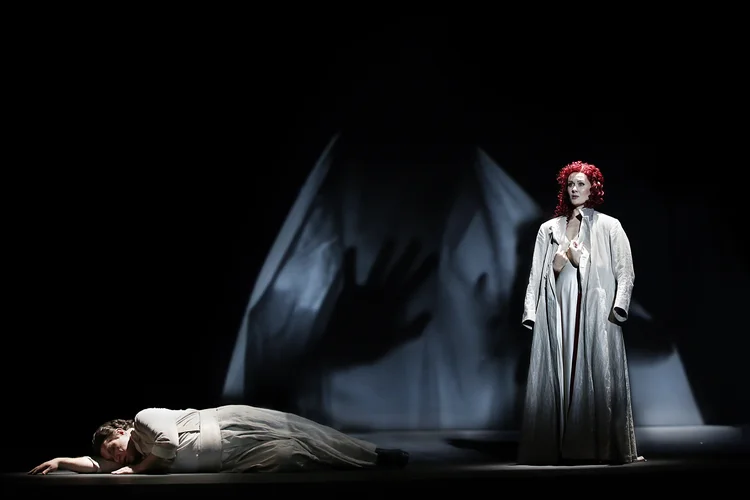The expression "io credo", i.e. "I believe", occurs at key moments in this plot and actually allows us a glimpse inside the three main characters: Iago, Desdemona and Otello. On the one hand, we have Iago's well-known "Credo" in the second act, the confession of faith of the evil one. Verdi wanted a broken, less lyrical metre for this scene , which is why Boito suggested a rather blasphemous-sounding "Credo" to him here, with torn and asymmetrical verses. In this monologue scene, Iago cynically declares his nature: "I believe in a cruel God who created me in his image ... ". A closer look at the text reveals that many of the terms come from a poem by Boito in which he actually addresses this question of man's dichotomous nature between good and evil. It is about Boito's poem "Dualismo" (1863), which is considered a manifesto of the "scapigliatura". These "Scapigliati", literally "The Uncombed", were a movement of progressive writers and artists who were particularly active in Milan from the 1860s onwards.

"Credo" by Iago thus also has a programmatic character and reflects a direct connection to Boito's intellectual environment. In contrast to this profane "Credo", in the last act we find Desdemona's religious "Credo". The aria begins with an "Ave Maria", but then develops into a very personal prayer through a kind of paraphrase. Boito and Verdi end this scene with an extremely intimate effect, where Desdemona prays silently for herself. The orchestra continues to play and we hear only fragments of the actual text, just the "Ave Maria" and the words "at the hour of our death": a terrible foreshadowing of her fate. Between the characters of Iago and Desdemona, we finally find Otello, who also utters a "Credo", a very fragile one that highlights his doubts. In dialogue with Iago in Act II, he contradicts himself: "I believe Desdemona is honest, I believe she is not. Thee (Iago) I honestly believe, and hypocritically I believe thee". Otello no longer knows who or whom to believe in. This reminds us of a basic question of life in general: what do we really believe in?
